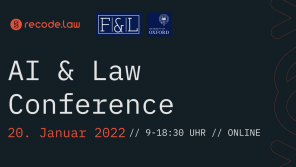Artificial intelligence (AI) will have an enormous impact on the way people live and work in the coming decades. The European Union (EU) is about to design this way and become a global hub in AI.
To achieve this goal in a competitive race European Commission has taken another major step forward. It published the 2021 review of the Coordinated Plan in April this year. In this review Europe puts forward a concrete set of joint actions on how to create EU global leadership on trustworthy AI.
The 2021 review is build on the strong collaboration between the Commission and Member States established during the 2018 Coordinated Plan.
Key Actions Proposed Within the New Strategy:
It is all about working together to remove fragmentation and bundle resources. Member states are strongly encouraged to work together on EU level.
The key actions pointed out are: Firstly set enabling conditions for AI development and uptake in the EU.
Secondly make the EU the place where excellence thrives from the lab to market. Thirdly ensure that AI works for people and is a force for good in society. This is achieved by building strategic leadership in high-impact sectors. For example law enforcement, migration, health and mobility.
Fourthly accelerate investments in AI technologies. Through the Digital Europe and Horizon Europe programmes, the Commission plans to invest EUR 1 billion per year in AI. Further mobilise investments from the private sector and the Member States to reach EUR 20 billion investment per year over the course of this decade.
In order to push the strategy 19 countries out of 27, as well as Norway, have adopted specific national strategies. The remaining national strategies are in progress and expected to be published soon.
It is important to act fast to ensure that the EU fully benefits from first-mover adopter advantages. According to the press release the Commission will continue to collaborate with Member States to implement the actions announced in the Coordinated Plan.
Legal Framework
In addition the European Union Commission released its long awaited proposed regulation of artificial intelligence. This sets out a risk-based approach to regulation designed to increase trust in the technology and ensure the safety and fundamental rights of people and businesses above all. The regulation has extra-territorial scope meaning that AI providers located outside of the EU whose technology is used either directly or indirectly in the EU will be affected by the proposal.
The proposal sets out a nuanced regulatory structure that bans some uses of AI, heavily regulates high-risk uses and lightly regulates less risky AI systems.
The regulation bans AI systems that cause or are likely to cause ´physical or psychological´ harm through the use of ´subliminal techniques´ or by exploiting vulnerabilities of a ´specific group of persons due to their age, physical or mental disability´. It prohibits AI systems from providing social scoring for general purposes by public authorities. This wide ranging applicability and the ambitious nature of the proposal have afforded it intense scrutiny, as it is the first regulation of its kind.
There still is a long way to go as Margrethe Vestager, Executive Vice-President for a Europe fit for the Digital Age, said: ´the EU is spearheading the development of new global norms to make sure AI can be trusted. By setting the standards, we can pave the way to ethical technology worldwide and ensure that the EU remains competitive along the way. Future-proof and innovation-friendly, our rules will intervene where strictly needed: when the safety and fundamental rights of EU citizens are at stake´.
The AI Regulation represents a major legislative initiative that may serve as a template for similar measures around the globe.
Next Steps
The European Parliament and the Member States will need to adopt the Commission’s proposal on a European approach for Artificial Intelligence in the ordinary legislative procedure.
It remains exciting and there will be some debate about the regulation. The EU institutions could streamline and rationalise the new legal framework until a final regulation is reached.
We will keep you posted!




